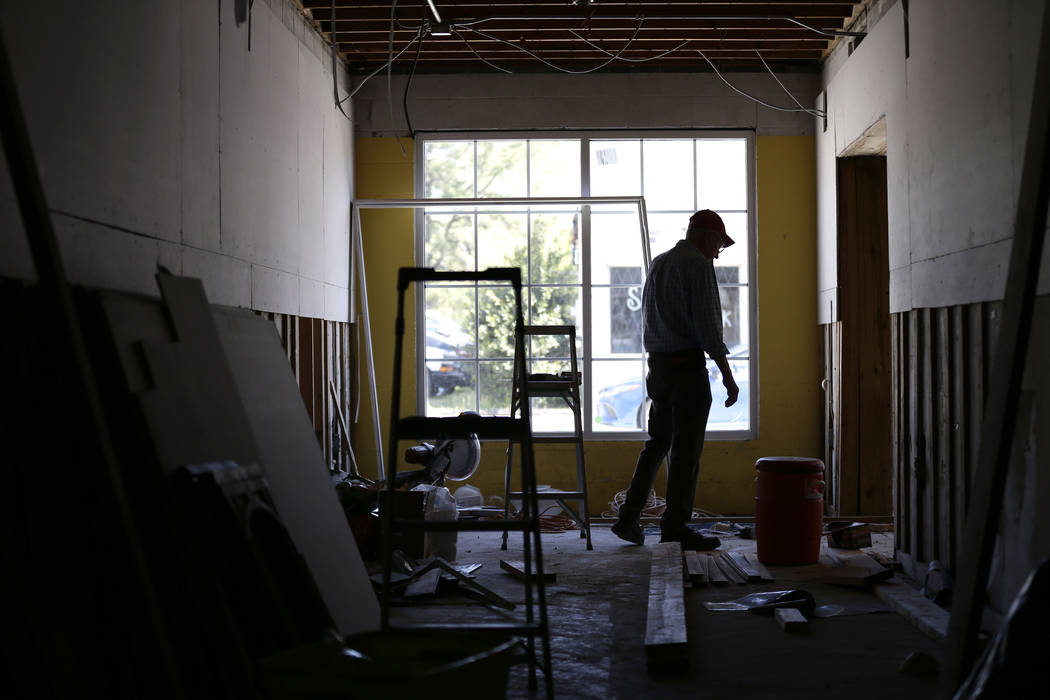Devastated NC town still recovering from Hurricane Florence

TRENTON, N.C. — Nine months after Hurricane Florence inundated much of eastern North Carolina, the tiny town of Trenton is still struggling to rebuild as a new hurricane season begins.
The Jones County courthouse and jail have yet to reopen. Judges hear cases in county office buildings and inmates are housed in another county. Even the mayor has yet to move back into her house because construction workers are in short supply.
“It’s a slow process when you’ve got so many people displaced and only so many people to work,” Mayor Darlene Spivey said. “It’s mentally and physically exhausting. … It’s just more than I ever could have fathomed.”
The stately brick and stone courthouse rises over Trenton’s main street of brick storefronts, a bank branch, restaurant and gas station, along with several churches and a cemetery. The Trent River flows several blocks away.
The September 2018 hurricane turned downtown into a shallow lake of muddy water, flooding 106 homes — all but about 20 of the town’s households, town officials say.
All told, Florence caused $22 billion in damage in North Carolina, according to the National Hurricane Center. A state tally counts 45 storm-related deaths. In Jones County, numerous water rescues were performed as the Trent River overflowed its banks at record levels.
With the start of hurricane season June 1, the threat of another round of storms worries Sharon Metts, 81, who had never seen the home where she’s lived since 1965 flood before Florence swamped it. She recently moved back in after a charity replaced ruined flooring, drywall and cabinets.
“I’m afraid of them now,” she said of hurricanes, standing on a porch that was submerged by several feet of water. “It’s been in the backyard; it’s been under the house. But never like this.”
Town Clerk Glenn Spivey, who’s married to the mayor, fears that as many as half the town’s flooded homes could qualify for a government buyout that would preclude rebuilding on the land.
A visitor can walk most of the residential streets of one-story houses with large lawns in an afternoon. During a recent tour, Glenn Spivey pointed out several homes already vacated for good and several others with FEMA trailers parked outside.
If more people leave permanently, it would be “rough, rough,” he said.
“You’re losing money as far as sewer users. The county’s losing water users. Plus, we’re all going to lose tax base,” he said.
Fifty-five homes with Trenton addresses are being evaluated for federal hazard mitigation funds, though some may be outside of town limits, according to state emergency management officials. The Federal Emergency Management Agency hazard mitigation program includes buyouts, elevating houses or other flood-proofing repairs. Across Jones County, 111 homeowners have sought expedited buyouts because of Florence, more than any other North Carolina county, according to a joint state-federal notice .
It’s not clear when buyouts will be approved, but FEMA already has paid county residents $33 million in aid, loans and insurance payouts. As of late May, 37 county households were still staying in FEMA trailers or other temporary units.
Standing on bare subflooring with building supplies stacked against the walls of his house, Glenn Spivey said that because he and his wife had flood insurance, they got checks quickly from their insurer. But finding contractors proved much more difficult.
He said contractors would tell him: “You’re No. 200 on my list” or “You’re No. 150.’”
Construction workers have gravitated to bigger towns and cities, he said, owing to a combination of deeper pockets, larger populations and more news coverage.
To the south in Wilmington, where media outlets positioned themselves for live-shots during the hurricane’s arrival, tree-removal and construction crews began arriving from other states hours after landfall.
Jones County is also one of six North Carolina counties without a newspaper, according to a University of North Carolina study. The county also has no local television stations based there.
“The more word you can get out, the better off you are, especially when it comes to financial resources,” said Scott Murphy, who leads MX Network, a local Christian charity repairing homes and businesses. “Getting the money to rebuild is really important.”
Faith-based charities have spread the word through their own networks, offering hope for some homeowners.
Freddie Lee Mundine, 83, spent six months staying with relatives after Florence filled his home with 3 feet of water. But church-related charity workers, coupled with FEMA assistance, allowed him to return recently, sleeping on an air mattress while he replaces ruined furniture.
“The church did most of the work,” he said.
Metts, who lacked flood insurance and feared having to abandon her home, said workers from Christian Aid Ministries found out about her “by word of mouth” and made her house livable.
“We decided we weren’t going to be able to (rebuild), but then they came and offered to help us,” she said. Now, she adds: “We’re going to stay here as long as we can.”